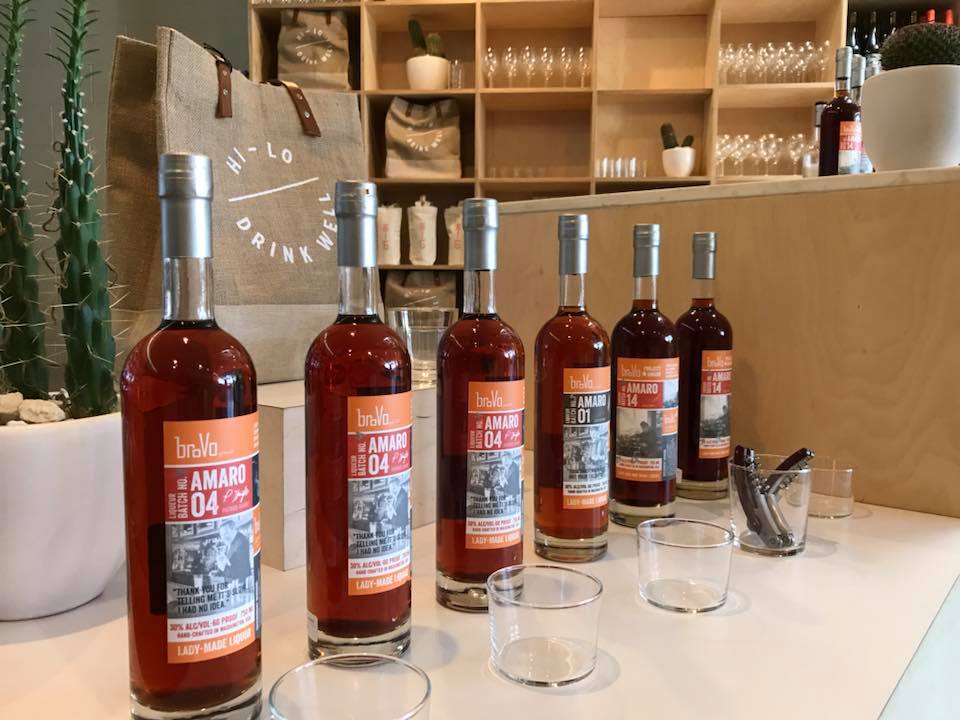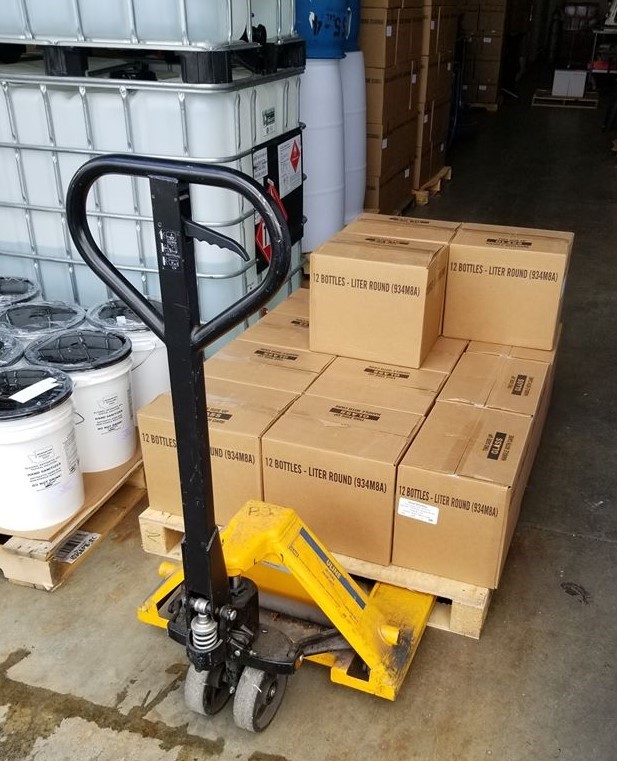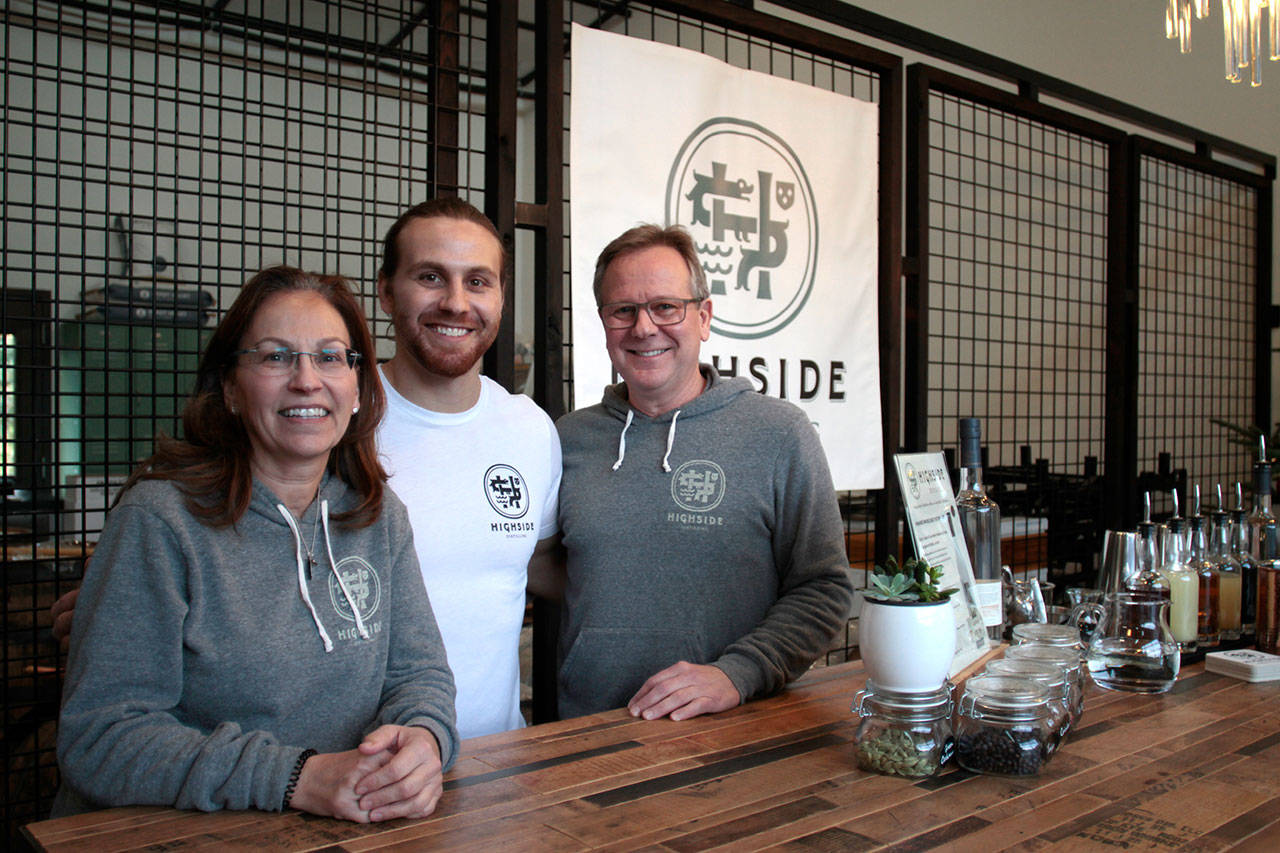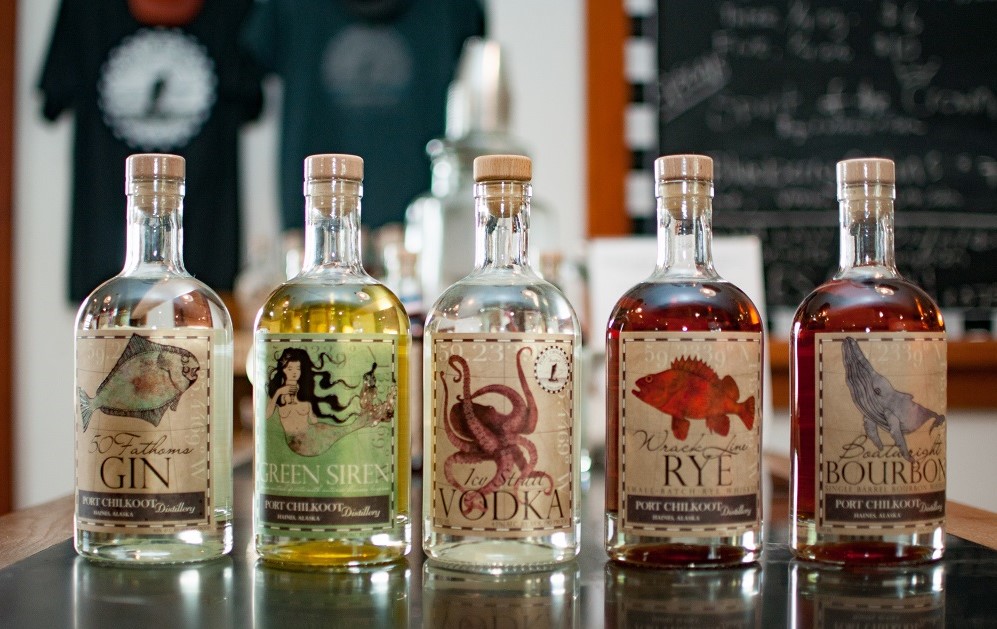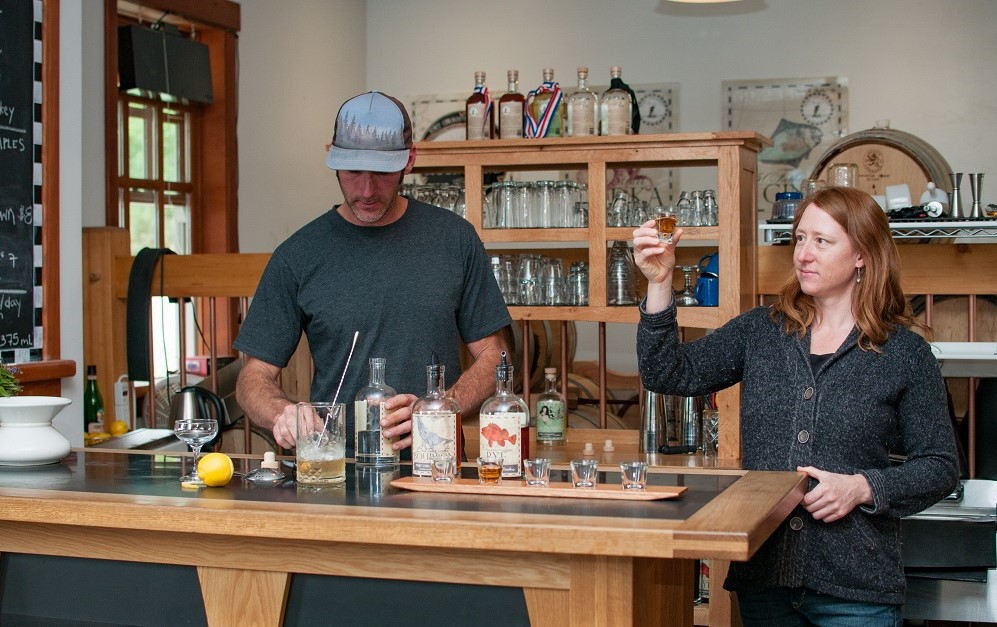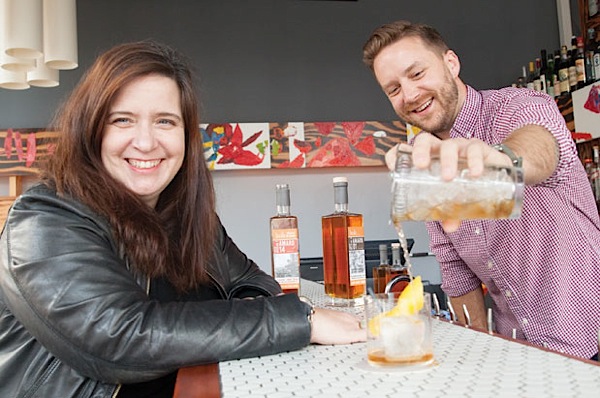From spirits to sanitizer: Foster alumni distillers shift production in response to pandemic
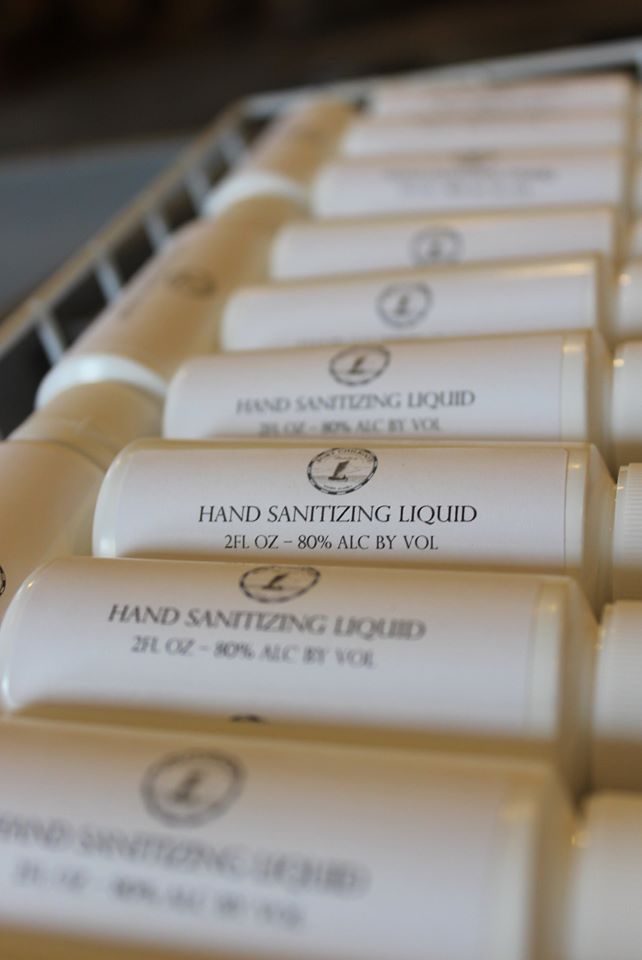 The first thing to go was the hand sanitizer.
The first thing to go was the hand sanitizer.
Before toilet paper became the impossible-to-find commodity, it was the vanishing bottles of Purell from store shelves across the nation back in March that sounded the first note of panic for the coming COVID-19 pandemic.
With hand-hygiene being one of the major keys to staying healthy and “flattening the curve” of virus infections, the shortage of alcohol-based sanitizer presented a mortal public health crisis.
But distillers across the land mobilized, diverting their production of whisky, rum, vodka and gin to everyday hand-sanitizer, at least 60 percent alcohol (adhering to CDC guidelines).
Several Foster-educated distillers have joined the movement, becoming citizen-sanitizers in this mission to keep America’s hands clean and lungs clear of coronavirus.
BroVo Spirits
Leading the charge locally is Mhairi Voelsgen, co-founder of BroVo Spirits and president of the Washington Distillers Guild.
Voelsgen, who studied marketing in one of the Foster School’s Executive Education certificate programs, has helped mobilize the loosely banded fellowship of craft distillers to produce an entirely new product with exacting specifications. And fast!
She has been triaging a flood of calls from organizations that need sanitizer: nursing homes, hospitals, NICUs, fire departments, ambulance companies, police departments, homeless services, court services, meals on wheels, grocery stories, prisons, transit systems—you name it.
“There are 30 distilleries around the state participating,” Voelsgen wrote in a March Facebook post. “It’s our Dunkirk moment. All of these small operations are changing everything they do, during a time of extreme uncertainty, to keep our frontline first responders and healthcare workers safe. All while most bars and restaurants and our own tasting rooms are shut… We’re working together for the greater good of society.”
To lead by example, her own “lady-made liquor” company, BroVo, has tabled concerns for its own survival until another day. Too busy converting the essence of its award-winning amari, vermouth and botanical liqueurs to produce case after case of sanitizer for those who need it now.
Highside Distilling
Another member of the guild who is participating in the distillers’ Dunkirk is Jeff Glenn (MBA 1993), a graduate of Foster’s Executive MBA Program. The telecommunications industry veteran turned a lifelong love of home brewing and passion for the craft beverage industry into a vibrant family business, alongside his wife, Helen, and son, Matt.
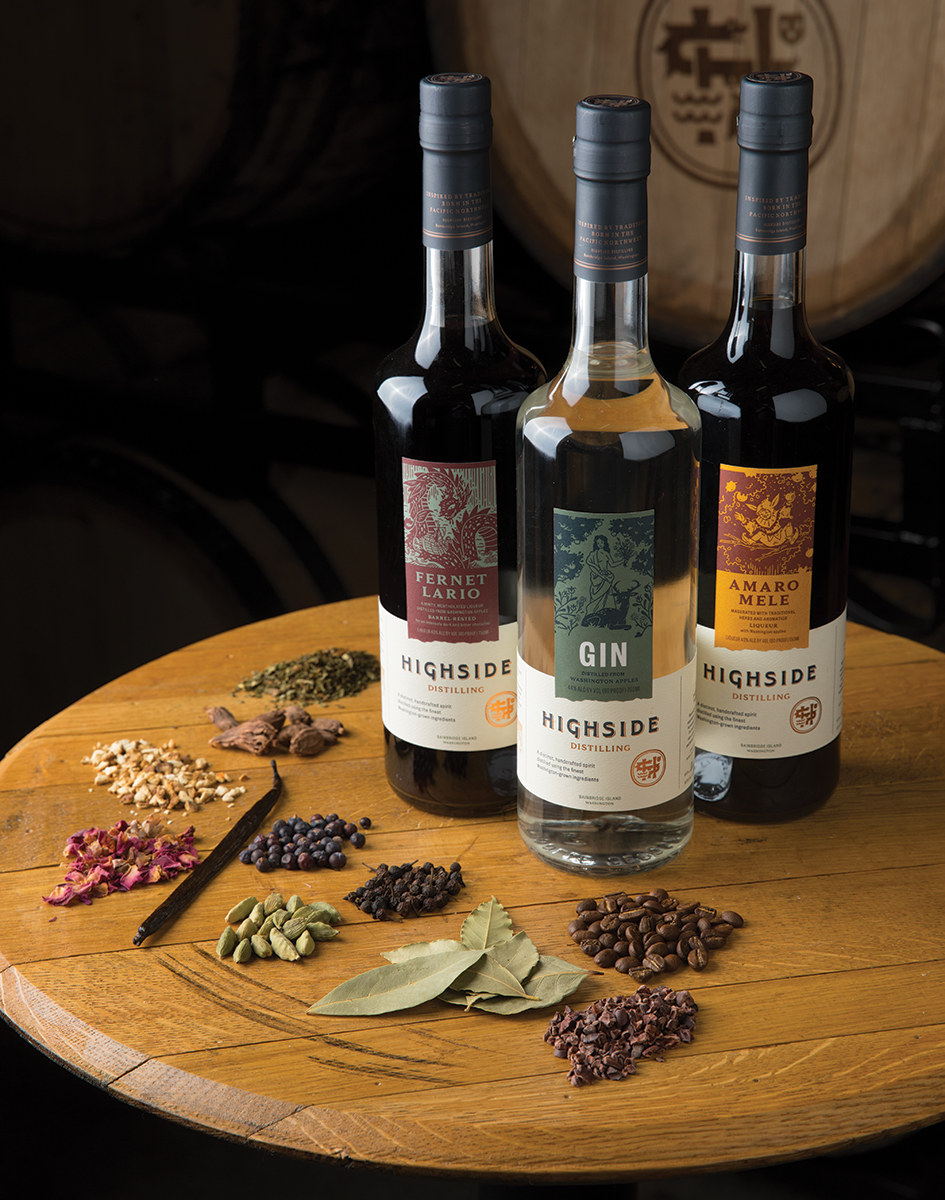 Inspired by trips to the Highlands and Speyside regions of Scotland, the Glenn clan opened Highside Distilling in 2018 and began producing fine gin, amari and single-malt whiskey from their Bainbridge Island distillery.
Inspired by trips to the Highlands and Speyside regions of Scotland, the Glenn clan opened Highside Distilling in 2018 and began producing fine gin, amari and single-malt whiskey from their Bainbridge Island distillery.
In March, they switched to making hand sanitizer.
“Like many of our friends in the distilling community, we made the decision to transition our skills from making gin, whiskey and amari into making hand sanitizer to help do our part during this COVID-19 pandemic,” Glenn says.
The bulk of the first run of 50 gallons of Highside sanitizer went to hospitals, first responders and others on the frontlines of the pandemic, with a portion made available to the public The second batch of 55 gallons is nearly gone. And the Glenn family begins distilling its third batch today, from some “pretty tasty” high ABV Washington Hard Cider.
Four-ounce personal bottles are available for pickup at the distillery on Wednesdays and Saturdays for no cost, though Glenn says they “gladly accept donations to help us cover our costs so we can continue to make sanitizer as long as it’s needed.”
Port Chilkoot Distillery
Serving the residents of Haines, Alaska, and environs, Heather Shade of Port Chilkoot Distillery, has gotten into the hand sanitizer business, too.
Shade is a former National Park Service biologist who brings a scientist’s curiosity to the craft spirits industry. She established Port Chilkoot in 2012, become the founding president of the Distiller’s Guild of Alaska in 2014, and completed the Foster School’s Minority Business Executive Program in 2016.
Up until March 2020, she was ensconced in creating a range of fine, award-winning spirits: 50 Fathoms Gin, Boatwright Bourbon, Wrack Line Rye, Icy Strait Vodka and Green Siren Absinthe (all soon available in the lower 48).
And then she began producing sanitizer.
Port Chilkoot’s new hygienic “spirit” supports local postal workers, firefighters and police officers—and is available to the public for free (donations appreciated) in area markets, outfitters and liquor stores. They even collect used bottles at the distillery tasting room to be sterilized, refilled and put back into circulation. “We want to make sure there’s enough for everyone,” Shade says.
Team spirits
Voelsgen points out that this collective initiative of disparate-but-kindred artisans has been hard work. Craft distillers have had to source unfamiliar ingredients required to make sanitizer and figure out processes, containers and distribution. They have to negotiate with state liquor boards on taxation and deal with the FDA and regulatory guidance that is constantly evolving. “We’re building the plane while we are flying the plane,” she says.
But this shared endeavor fills her with pride.
“When COVID-19 is merely a moment you remember in time, please remember the distilleries of Washington state (and elsewhere), and people who changed everything they do to be able to help, to keep you safe,” she adds. “And raise a cocktail made with local liquor to toast this amazing community.”
Hear, hear!
To Voelsgen, Glenn, Shade and all the rest, we raise a glass and offer a heartfelt: Salud! Prost! Kanpai! Na zdrowie! Sláinte! Skål! Gesondheid! L’chaim! Gān Bēi! Cheers! Santé!

